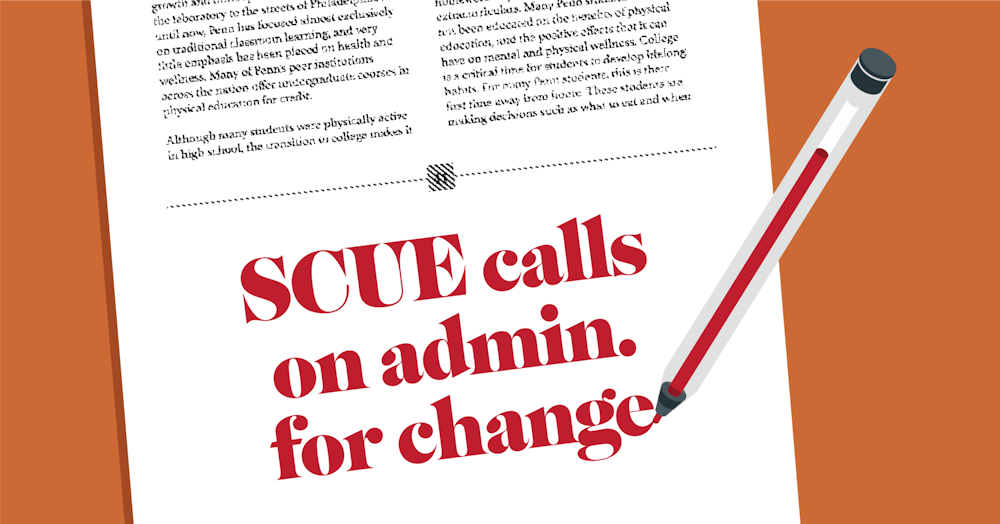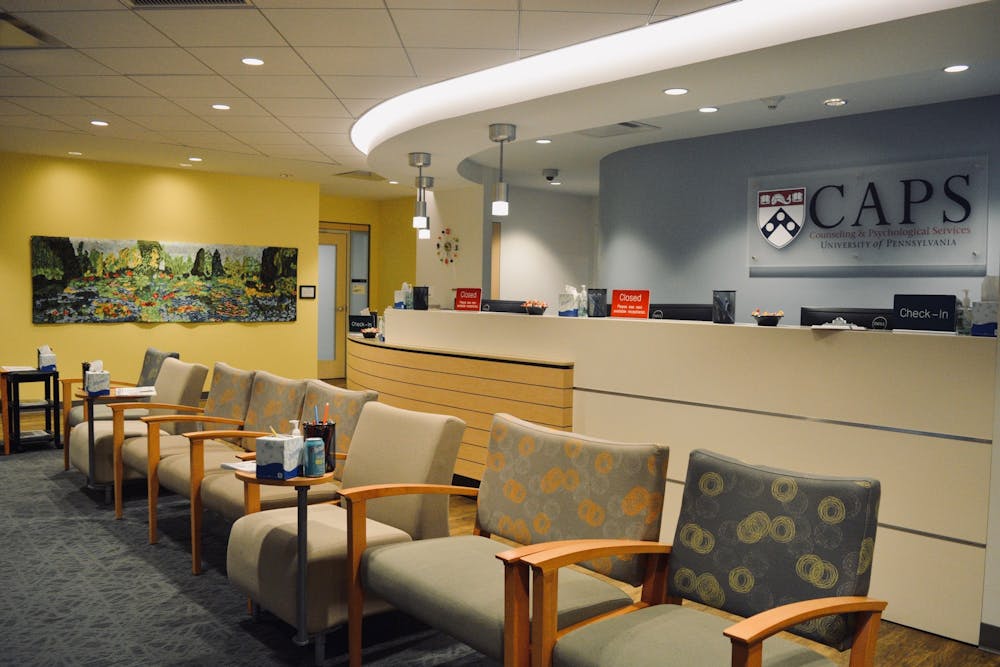
The Student Committee on Undergraduate Education will release its 2020 White Paper next month outlining goals for improving student life, primarily the ability to schedule Counseling and Psychological Services appointments online, writing seminars with less focus on the literature review, and a new general education curriculum.
Since its 1965 founding, SCUE has published White Papers every five years recommending policy changes to administrators. Past White Paper reports have resulted in the creation of fall break, coeducation in the College, and pass/fail courses.
Engineering sophomore and SCUE Secretary Aidan Young said the White Paper's initiatives are based on feedback collected from students and faculty last April. SCUE will propose both long and short term initiatives in three categories: Wellness, Shared Academic Experiences, and Access and Equity. College junior and SCUE Chair External Carson Eckhard said each of these three categories has a committee within SCUE that work to develop proposals related to their topic.
Eckhard said SCUE will suggest online scheduling to make CAPS more accessible. Eckhard added students currently must make appointments by calling the office and believes an online scheduling system would be both more efficient and encourage more students to schedule an appointment.
Former Chair External of SCUE and College and Wharton senior Arman Ramezani said he hopes administrators will begin implementing the short term proposals in the White Paper, including CAPS online scheduling, within the next one to three semesters.
The Shared Academic Experiences committee addressed students’ academic concerns across the four undergraduate schools. Young said one of the paper's long term proposals includes increasing College students' access to group study rooms in proposed on-campus building projects. Young cited the large number of GSRs available for Wharton students in comparison to College students.
Because survey results indicated strong student dissatisfaction with writing seminars, Young said SCUE will propose changes to writing seminars to make assignments more practical for students in Engineering, Wharton, and Nursing. One suggestion entails spending less time on the literature review, as many surveyed students felt the project was not beneficial to their career goals.
SCUE's White Paper will suggest same-day CAPS appointments for better accessibility.
Young added the White Paper will suggest writing seminars incorporate books into the curriculum in a more meaningful way, rather than use them as a mere exercise to create outlines.
The report will also suggest a cluster system combining sectors and foundational approaches in order to give students more freedom when choosing general education requirements, Young added. He said, for example, the Quantitative Data Analysis foundational approach and Natural Sciences and Mathematics sector would become one requirement that students can fulfill by taking two to three classes.
“It's less breadth, but a little bit more depth,” Young said.
Eckhard said after considering student feedback and meeting with Maryann O'Leary Salas, the executive director of development for Undergraduate Financial Aid & Penn First Plus, SCUE will also suggest increasing faculty diversity to make students of color and FGLI students more comfortable in class.
The 2019 Action Plan for Faculty Excellence and Diversity found that over 8% of faculty are underrepresented minorities, a slight increase from the 7.9% recorded in the 2017 Action Plan.
“Relationships between faculty and students can improve when faculty resemble the student body,” Eckhard said.
The last White Paper released in 2015 included proposals such as creating modules on sexual assault, academic integrity, and mental wellness for students coming back to campus in the fall and a university database of students' gap year experiences.
Ramezani said that while the targeted audience is administrators who have the power to implement changes, SCUE will publish the paper on their website for students to read.
“We hope it will shape conversations both in student government and at the administrative level within the next few years,” Eckhard said.
The Daily Pennsylvanian is an independent, student-run newspaper. Please consider making a donation to support the coverage that shapes the University. Your generosity ensures a future of strong journalism at Penn.
Donate




